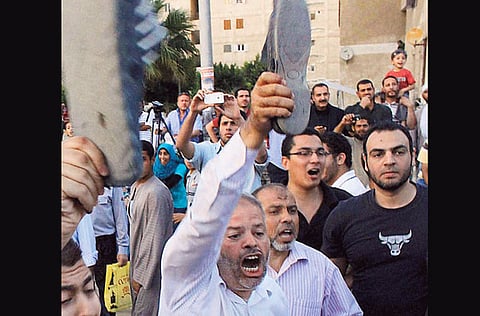Egypt elections conclude as runoff looms large
Observers dismiss exit poll predictions as part of ‘psychological war’

Cairo: Egypt wrapped up two days of polling on Thursday in a landmark presidential election that pitted stability against the ideals of the uprising that ended Hosni Mubarak’s rule. But the hard-fought contest threatened to go to a possible runoff to be held on June 16-17.
The count began immediately after polling stations closed at 11pm (UAE time), with for the first time an unknown outcome that may well force a second round between the two frontrunners.
The second day’s turnout varied widely across the country, with long queues outside some polling stations and scant participation in others. The official body supervising the election estimated that around 50 per cent of eligible voters cast their ballot.
Meanwhile, a group monitoring the polls said that two Islamists are leading, but two Mubarak-era contenders are not far behind.
The Revolution Shadow Government, a self-styled group, said in a statement yesterday that moderate Islamist Abdul Moneim Abu Al Fotouh and the Muslim Brotherhood’s candidate Mohammad Mursi won 26.3 per cent and 24.2 per cent of the vote respectively after the first day.
Leftist contender Hamdeen Sabahi is in third place with 21 per cent, followed by Ahmad Shafiq (11) and Amr Mousa (10).
Explaining its findings, the group said it had used exit polls surveying 2,085 voters in 15 of Egypt’s 27 governorates. “Our poll is based on a random sample with a possible error margin of 5 per cent.”
Observers, however, dismiss the findings as unscientific, calling them part of a “psychological war” waged by the contestants against each other in a race being contested by 13 hopefuls.
An electoral commission is expected to announce the official result on Tuesday after looking into complaints from the contenders.
Sign up for the Daily Briefing
Get the latest news and updates straight to your inbox



